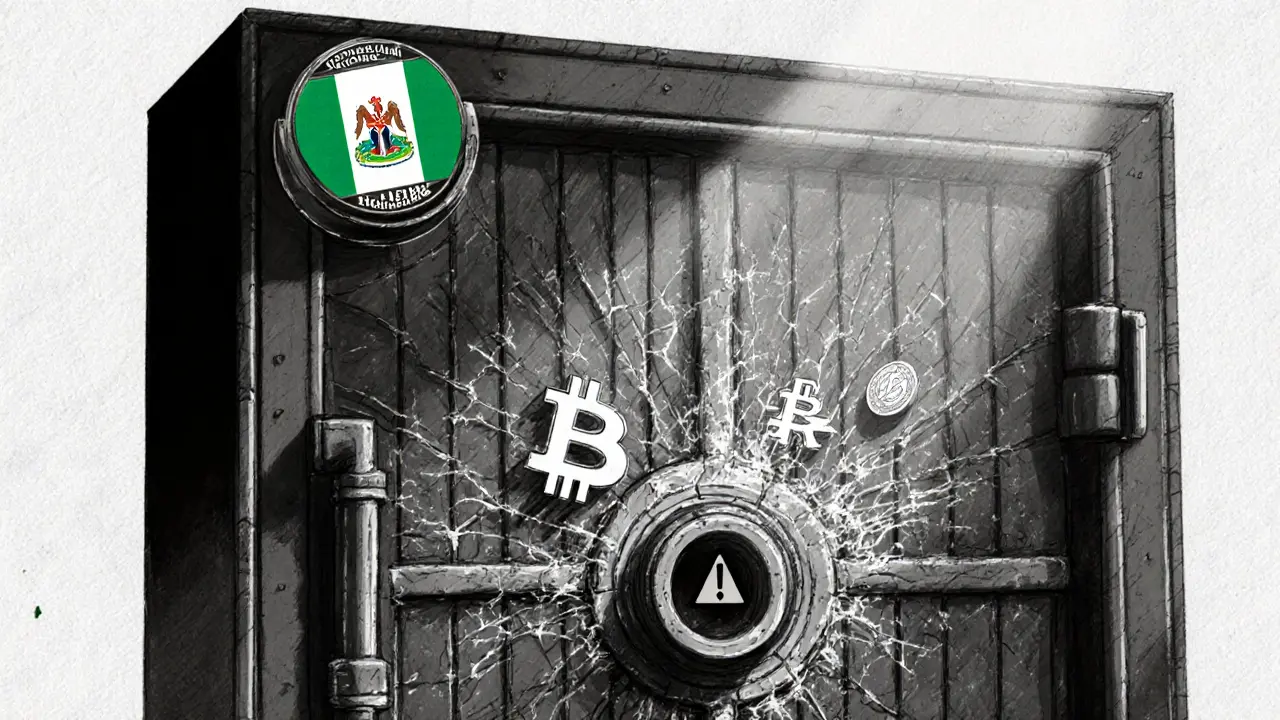Nigeria Cryptocurrency Banking Ban Reversal
When talking about Nigeria cryptocurrency banking ban reversal, the recent policy shift that lets banks handle crypto transactions again after a year‑long freeze. Also known as the crypto banking lift, it opens doors for traders, developers, and everyday users who were stuck on the sidelines.
The reversal directly ties into cryptocurrency adoption in Nigeria, the rapid rise of Bitcoin, Ethereum, and local stablecoins as people look for alternatives to a weak naira. It also intersects with the Central Bank Digital Currency (CBDC) initiatives, the Nigerian government's plan to launch a digital naira that could coexist with private crypto. Together, these forces shape a new financial landscape where traditional banks, crypto platforms, and regulators must find a common workflow.
Why the Reversal Matters
The ban reversal requires banks to upgrade compliance tools, like real‑time transaction monitoring and KYC automation, to satisfy both local AML rules and crypto‑specific risks. At the same time, fintech startups gain a legal runway to integrate wallet services into existing banking apps, which speeds up user onboarding. This shift influences the overall crypto market depth in Nigeria, making liquidity pools more attractive for DeFi projects that rely on local fiat on‑ramps.
From a regulatory angle, the Central Bank of Nigeria (CBN) now enforces a framework that mandates banks to report crypto‑related activity while still allowing private entities to issue stablecoins under a licensing regime. This mix of oversight and permission creates a sandbox where innovation can flourish without the chaos of a total ban. The result is a more predictable environment for investors looking to allocate capital in African crypto assets.
For everyday users, the reversal means they can finally move money from a crypto wallet to a bank account without jumping through hoops of offshore exchanges. It also cuts down on the fees and time delays that were common when using peer‑to‑peer transfers. In practice, this gives workers sending remittances home a cheaper, faster option that bypasses the informal market.
On the technology front, banks are adopting blockchain‑based settlement layers to reconcile crypto deposits instantly. These layers enable cross‑border payments that settle within minutes, a stark contrast to the days‑long processes of traditional SWIFT transfers. The synergy between banking infrastructure and blockchain protocols also opens up new revenue streams, such as earning yields on pooled crypto assets.
Investors watch the policy change closely because it affects token price dynamics. When banks can legally handle crypto, trading volumes on local exchanges spike, pushing up liquidity and often boosting price stability. At the same time, the prospect of a national digital currency adds an extra layer of speculation, as market participants try to gauge how the CBDC will compete with existing private tokens.
Education plays a big role in this transition. Community hubs like TokenFolks provide beginner‑friendly guides on how to move crypto into bank accounts, understand tax obligations, and navigate the new compliance landscape. By demystifying the process, they help reduce the knowledge gap that once kept many Nigerians wary of official channels.
Businesses are also feeling the impact. Merchants who previously accepted only cash or informal crypto payments can now integrate official payment gateways that settle directly into their bank balances. This boosts consumer confidence and expands the market for digital goods and services, from online gaming credits to e‑learning subscriptions.
Looking ahead, the ban reversal sets the stage for more collaborative efforts between the CBN and crypto industry groups. Future policy drafts are likely to outline clear criteria for stablecoin issuance, sandbox testing for new DeFi products, and perhaps even joint research on digital identity solutions that blend decentralized IDs with banking KYC.
In short, the Nigeria cryptocurrency banking ban reversal reshapes how money moves, who can move it, and under what rules. It bridges the gap between legacy finance and the fast‑growing crypto ecosystem, giving both sides a chance to learn from each other.
Below you’ll find a curated set of articles that dive deeper into the specifics—ranging from market analysis and tax guides to detailed reviews of crypto exchanges operating in Nigeria. Keep reading to see how each piece fits into the broader picture of this evolving financial frontier.

Nigeria Crypto Banking Ban Reversal: 2021‑2025 Timeline & Impact
Explore Nigeria's journey from the 2021 crypto banking ban to the 2025 Investments and Securities Act, with a clear timeline, regulatory details, and impact on users and businesses.
